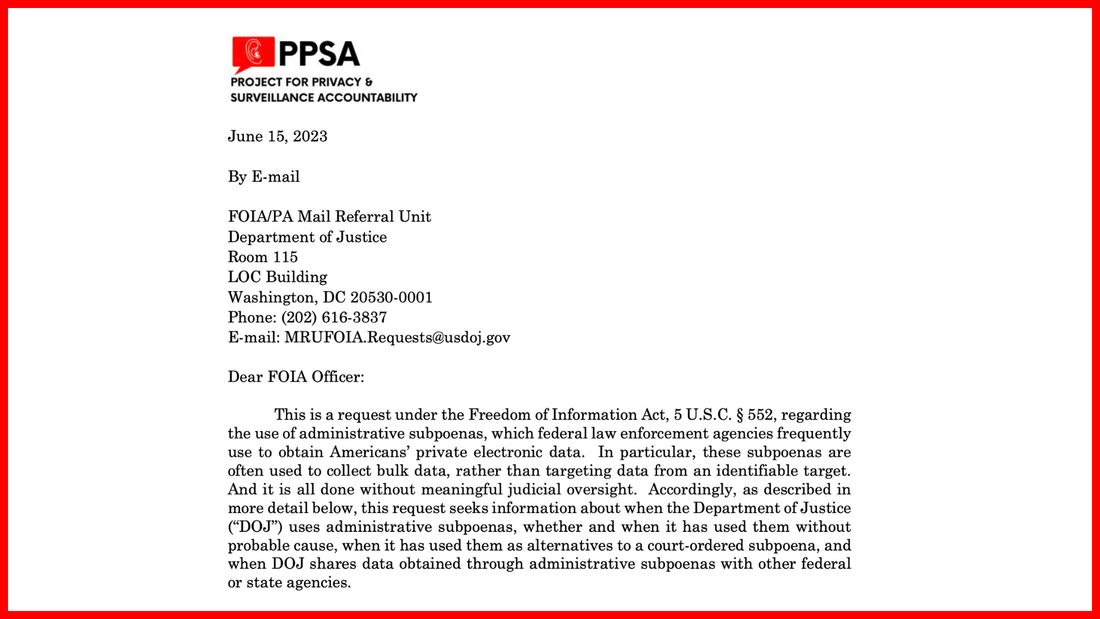|
PPSA today announced the filing of a Freedom of Information Act (FOIA) request with the Department of Justice asking for documents and records showing whether DOJ ensures it has probable cause before issuing administrative subpoenas to seize Americans’ private electronic data.
Civil libertarians have long suspected that the DOJ often uses such administrative subpoenas to circumvent the probable-cause requirement for searching Americans’ records. This is particularly troubling, since such subpoenas, issued without a court order or judicial oversight, are often used to collect bulk data rather than targeting information from an identifiable target. “It may be likened to a fishing expedition, with Americans as the fish,” said Gene Schaerr, PPSA general counsel. PPSA’s FOIA request covers all the components of the Department of Justice, including the Executive Office for United States Attorneys, the FBI, the Drug Enforcement Administration, the DOJ’s Criminal Division, and the Bureau of Alcohol, Tobacco, Firearms and Explosives. PPSA is seeking:
“We are not asking about sources or methods or anything else that would trigger a Glomar response that would shut off all disclosure,” Schaerr said. “We seek topline information necessary for Congress to conduct oversight and for the American people to understand how our government uses our most personal and sensitive information.” Comments are closed.
|
Categories
All
|


 RSS Feed
RSS Feed